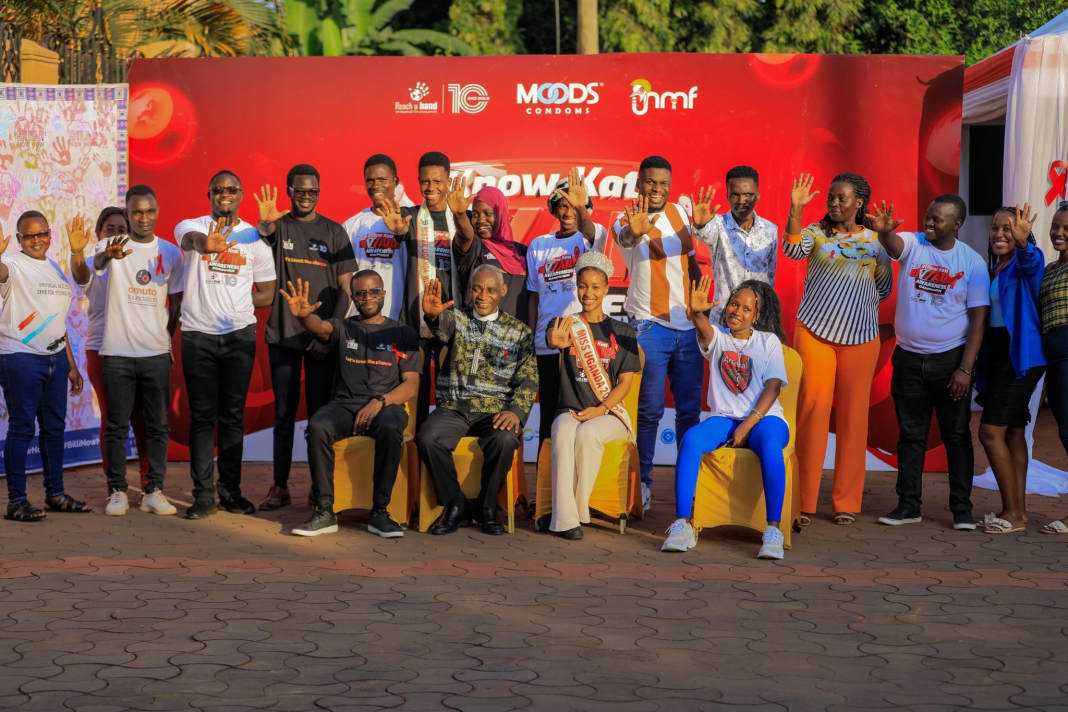HIV/Aids activists have called for continued education and awareness, particularly among young people in the fight against the virus. The clarion call was made during ‘I Know Kati HIV/AIDS awareness jam session’ which was held at A’lure Suites in Mutundwe.
According to Uganda Aids Commission (UAC) there are 1.49 million people live with HIV in Uganda, of whom 92% know their positive HIV status, and over 90% of these are on antiretroviral drugs (ARVs).
UAC indicates that at least 38,000 people contract HIV/AIDS every year of which 22,000 occurred among women, especially adolescents and young women aged 15-24 years. The shooting cases of HIV infection hinders governments the 2025 target of 18,000 new HIV infections annually.
The 2024 Aids at a Crossroads report by the United Nations Program on HIV/AIDS (UNAIDS) indicates that 1.3 million people acquired HIV in 2023.
The report indicates that HIV among adolescent girls and young women aged 15–24 years is extraordinarily high in parts of sub-Saharan Africa. 120,000 adolescent girls and young women acquired HIV in 2023, bringing the total number of children living with HIV globally to 1.4 million, 86% of whom are in sub-Saharan Africa.
Canon Professor Gideon Baguma Byamugisha who has lived with HIV for 32 years emphasized the importance of ensuring zero transmission of HIV and reducing stigma and death by adhering to proper medication.
He urged those in positions of power to use their influence responsibly, ensuring that they do not sexually abuse others.
“You should not defile or rape anyone, nor should you force someone into sex when they do not consent. Men and boys, who are often granted significant power by culture and religion, must be held accountable,” he said.
As we observe the 16 days of activism against gender-based violence, it is crucial for those with power both personally and at the family level to use it responsibly. At the local level, we must ensure that everyone has access to safe behaviors, treatment, testing, and empowerment. At the national level, supportive HIV prevention policies must be put in place.
He attributed the increasing number of cases in sub Saharan Africa to a lack of knowledge and resources.
“60% of new infections occur in Africa south of the Sahara due to issues such as poor community leadership, governance, and widespread poverty. These are all forms of deprivation. People are deprived of love, justice, equity, and means of subsistence. AIDS is an opportunistic infection that takes advantage of societal weaknesses,” he said.
He emphasized that AIDS should not be portrayed solely as a behavioral disease but as a consequence of socio-economic challenges. “Let’s stop blaming and pointing fingers, and instead focus on supporting and listening to those affected.”
Benson Muhindo, Acting Country Director of Reach a Hand Uganda said shared insights from their activities during the 16 days of activism against gender-based violence.
He said they had carried out a series of outreach events, marches, and collaborations with musicians. They have a platform that we do not have. They have a large following, particularly among young people who admire them and want to be close to them. We bring musicians into communities to interact with young people and share their personal experiences around gender-based violence and HIV.
Muhindo praised the musicians who have openly shared their status and experiences. Many of them are living with the virus, and they have come out to support their peers. For this movement to gain momentum, it’s crucial that influential figures like musicians publicly join the cause.
He also expressed concern about Uganda’s progress toward the UNAIDS 95-95-95 targets by 2025. “If things stay the same, we might not meet our targets due to the rise of new HIV infections, particularly among young people. He attributed the rising cases to complacency with prevention messages and the prevalence of new high-risk environments, such as massage parlors, where people are vulnerable.
“We need to keep reminding them that, while it is possible to live with the virus, it comes with significant consequences. You must take medication every day, eat well, and make major lifestyle changes things that many young people take for granted,” he said.
“We want to ensure that that there are fewer people contracting HIV/ Aids. We want people to normalize testing for HIV/ Aid before they indulge in sexual acts or any relationships,” musician Eddy Kenzo said.
He said they have set up a desk at the secretariat to handle cases of musicians battling HIV/Aids.







